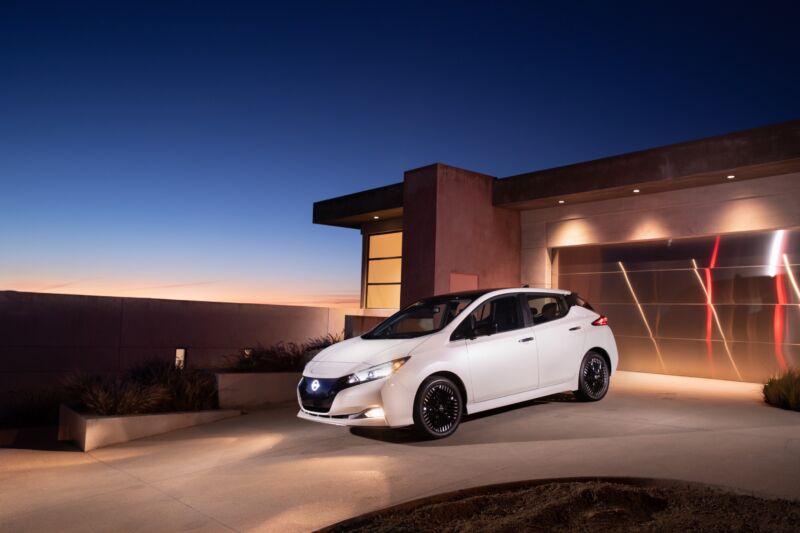A cheaper EV? The Nissan Leaf is now eligible for a $3,750 tax credit

While it is true that the recent wave of new electric vehicles has been anything but cheap, there are still a few relatively affordable EVs out there for people who don’t mind smaller cars—including the Nissan Leaf. An early pioneer in the electrification game, the venerable Leaf has been rather forgotten. Well, forget no more because there’s now Nissan Leaf news: The car once again qualifies for a federal tax credit.
We saw a big revamp of the federal EV incentive this year thanks to the Inflation Reduction Act. Before, the tax credit was tied to the storage capacity of the car’s battery. Now, it’s determined by how much of the pack was domestically sourced or assembled.
For this year, if at least half the pack’s critical minerals were refined in the United States (or a country with a free trade agreement with the US), then the EV is eligible for a $3,750 tax credit, provided that final assembly also occurs in North America. Another $3,750 is available if half or more of the pack’s components were assembled in the US.
The IRS took several months to begin enforcing the domestic battery requirements, at which point many fewer EVs qualified for the tax credit unless they were leased. Some automakers may have been a bit tardy filing their paperwork because, a few weeks later, more EVs were eligible, although many were still ineligible, including the Nissan.
Now, Nissan says it has been able to certify that the Leaf meets the battery component requirements, and so it is now eligible for a $3,750 tax credit for the remainder of the year. (Next year, the percentage of domestic components increases, so Nissan will have to recertify the Leaf again each year.)
Both variants of the Leaf are eligible—the $28,140 Leaf S, which has a 40 kWh battery pack and a range of 149 miles (240 km), and the $36,190 Leaf SV Plus, which has a larger 60 kWh battery pack and a range of 212 miles (341 km).
However, the Leaf remains saddled with the almost-obsolete CHAdeMO connector for fast-charging, and unlike the new Nissan Ariya, it appears very unlikely that Leaf drivers will gain access to the Tesla Supercharger network from next year. That, combined with a lack of liquid battery cooling (and the risk of a degrading battery capacity), will be enough to make some brush away the Leaf.
https://arstechnica.com/?p=1976256